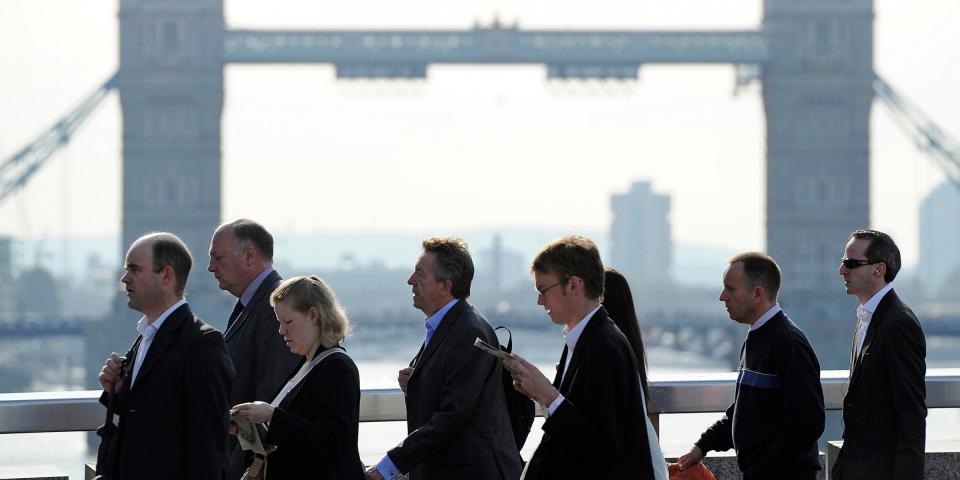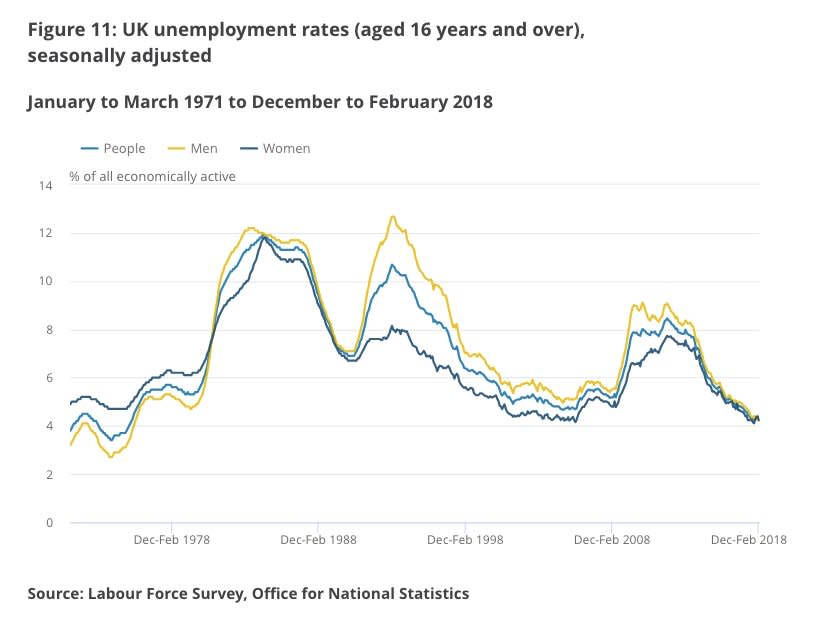UK unemployment falls once again — and Brits are finally getting a pay rise

REUTERS/Paul Hackett
UK unemployment rate falls from 4.3% to 4.2%.
Earnings grew by 2.8%, outstripping inflation for the first time in over a year.
"The labour market continues to be strong," senior ONS statistician Matt Hughes said.
LONDON – Unemployment in the UK fell unexpectedly between December and February, according to new data released by the Office for National Statistics on Tuesday.
The headline unemployment rate, which measures the percentage of the British workforce who want a job but don't have one, fell from 4.3% to 4.2%. It's the second consecutive month of a falling headline jobless rate.
There were 1.42 million unemployed people in the UK over the period, according to the ONS, 16,000 fewer than September to November 2017.
Employment also rose, with 32.26 million people in work. That's 55,000 more than in the previous period.
Wages grew on average by 2.8% over the period. That's higher than the rate of inflation, which was 2.7% at the most recent reading. The figures mean that UK workers are now getting a small real wage rise.
"The labour market continues to be strong, and for the first time in almost a year, earnings have grown slightly after inflation has been taken into account," senior ONS statistician Matt Hughes said in a statement.
"Employment rose again in the three months to February, to reach its highest ever rate since records began. The unemployment rate fell, too, and is at its lowest since 1975."
Here's the ONS' chart of UK unemployment over the longer term showing the huge decline in joblessness since the financial crisis:

ONSTuesday's wage data adds fuel to the argument that the Bank of England will likely increase interest rates at the next meeting of its Monetary Policy Committee in the first week of May.
Forecaster are split on whether or not the Bank of England will raise rates from 0.5% to 0.75% in May, but the latest positive economic data seems to make that increase more likely. The bank has stressed it is looking for wage growth before rate hikes.
Ruth Gregory, a UK economist at Capital Economics, said: "February’s labour market figures provide us with optimism that sustained rises in real wages are now in prospect and should seal the deal on another interest rate hike in May."
The pound, which hit a new post-Brexit high against the dollar on Tuesday morning, was little changed after the release.
NOW WATCH: A Nobel Prize-winning economist explains what Milton Friedman got wrong
See Also:
Brits have suddenly stopped shopping — and it's a worrying omen for the economy
Americans are using their credit cards more than ever — and some experts think that's a good thing
Britain's seemingly dire economy isn't actually doing that terribly
SEE ALSO: The pound is at its highest level since the Brexit vote

 Yahoo Finance
Yahoo Finance 
